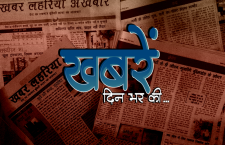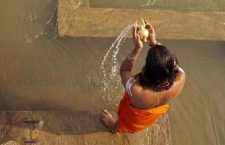The electoral process is a funny one.
We have our daily newsfeeds, for instance, with #NotMyPresident posts fuming with rage, rage that has already sublimated into community marches, workouts, Tai Chi sessions, jokes as well. While the man in question continues to be President.
And here, in the world’s largest democracy – a democracy where today we’re debating whether freedom of speech even exists, and wondering if that was an anti-national sentiment we were feeling, at the same time – even as we recover from the Republic Day parade and its ‘parade’ of Brand India, the process gains in surrealism by leaps and bounds.
Something we have the privilege of watching up close, and not only given the harsh spotlight because of the soon-to-be-held #UPElections2017.
So here we have an independent candidate prepping to fight the country’s biggest election this year, in a state that boasts (if boasts is the right word) of 400 parties –yes, registered parties with symbols ranging from charpais to chhatris. In a city that’s been marked for attention ever since Purshottam Maryada became part of lingua franca.
When we meet Banshi Lal Yadav in Faizabad, it’s almost as if he’s been waiting to tell us how Faizabad has been waiting for him. He can hardly contain the story in his excited narration of it, “I went to a village and met this very poor, Dalit family. The head told me how he’s heard about this one guy who’s not affiliated with any party, how he’s a poor man’s son, just like them. ‘I’m going to vote for him. Nobody else’. I asked this man, ‘Who is he? Do you know his name?’ ‘Banshi Lal Yadav’, he replied…’” The man with the name pauses, smiles, and continues, calmer, “I folded my hands, and touched his feet. Sir, I am Banshi Lal Yadav.”
Yadav is no novice in politics, and it’s not just his last name that should tell you that. A Samajwadi Party pro, he’s spent a lifetime with UP’s ruling party. 20 years to be precise. He quit the SP after years of waiting in the wings, and disappointment and finally, cynicism, that your wallet’s not plump enough to serve your party. The moment seemed near in 2012, but then didn’t transpire, after which Yadav was placated with the promise of ‘next time’. But this election year hasn’t turned out any different for him, and he finally decided to move on.
The move has left him supremely critical of all things SP – its agenda, its way of functioning, its “jhoothe vaade”, its people. “You only see them on the posters”, he says, half-smirking, “They never really come to the people to really understand them, their problems.” But it’s not just the ex he’s bitter about, Yadav is sweeping in his judgement of all political parties, “How would they know what troubles the poor, if they never even make the effort to meet them?”
Striking out indie hasn’t particularly been a favoured position in the history of Indian politics – with the exception of say an Aam Aadmi Party, which had particular roots and broad-based support from their association with an anti-corruption social movement – but Yadav is quite hopeful. The reasons, as he sees them, are clear to him, why anybody would choose him over a party. He cites smugness as one, “See, parties haven’t even released names of all their candidates yet. Who is going to contest these elections? And there’s less than a month to go!” True, but fun fact (or dismal reality, depending on which way you see it): Most parties trust their symbols will do the magic, along with a generous dose of identity politics. Individuals are more often than not, irrelevant.
Another reason, according to Yadav, is intent. “It’s about why we choose to run for the elections. It’s about samaj seva (social work). Why do parties get into it? Aarthik karan. (Financial reasons).” This is why he believes he will win, even as he pronounces a conundrum of a statement, “They know that I will serve the poor whether I win or lose the elections.” It’s because “gareeb ka beta” is fighting the elections, he adds.
Yadav is well-aware of the importance of the city he’s staking his claim on. He says it himself, “The whole country, even the whole world you could say, has an eye on Ayodhya.” With a textured history that was scarred and marred in recent times, Ayodhya is often brought up in electoral conversations, almost always evoked as a metaphor and a plot device in the ugly game of divisive rajneeti we’re so used to. This year, it promises to heat up even further with the BJP already talking Ram mandirs, the Congress moving EC to condemn BJP, and the relatively (shockingly) quiet BSP fielding their first-ever Muslim candidate from the region, a businessman who sells, wait for it… bicycles. But more on him soon.
Yadav insists he’s got different ideas and that he refuses to make appeals along the lines of caste and religion in his politics. We scuttle along and wonder maybe that’s what he means when he calls it an “adhbhut chunav”, this #UPElections2017.

